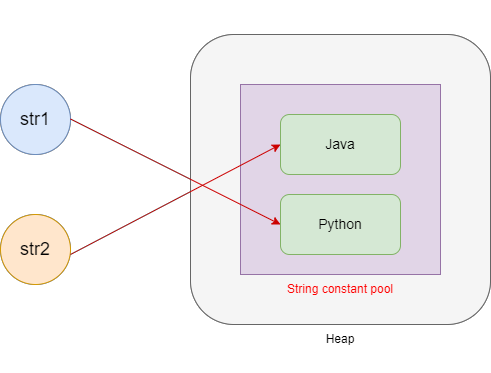Why Are Strings Immutable in Java? Detailed Evaluation for Developers
Why Are Strings Immutable in Java? Detailed Evaluation for Developers
Blog Article
Immutable Strings: A Secret Component in Ensuring Information Uniformity and Reliability
In the world of data administration, the significance of unalterable strings can not be overemphasized. These imperishable sequences of characters play a crucial role in upholding the integrity and precision of details within systems. By maintaining a state of immutability, information uniformity is guaranteed, cultivating a foundation of dependability upon which critical procedures depend. The concept of unalterable strings transcends simple technicality; it is a cornerstone in the complex web of data governance. As we discover the advantages, application approaches, and functional applications of immutable strings, a more clear picture arises of their crucial nature in safeguarding the digital landscape.
The Idea of Unalterable Strings
Unalterable strings, an essential concept in programming, refer to strings that can not be changed as soon as they are developed. Fundamentally, once a string worth is appointed, any kind of procedure that shows up to customize the string actually produces a brand-new string. This immutability guarantees data uniformity and integrity in applications, as it avoids unanticipated adjustments to the original data.
Benefits in Data Uniformity

Information uniformity is essential in numerous elements of software application advancement, consisting of database management, multi-threaded environments, and dispersed systems (Why are strings immutable in Java?). Immutable strings add considerably to accomplishing this consistency by preventing data corruption due to simultaneous accessibility. In scenarios where numerous processes or threads communicate with the same information simultaneously, unalterable strings function as a safeguard against race problems and synchronization problems
Moreover, the immutability of strings simplifies debugging and screening processes. With immutable strings, designers can trust that when a string is set, it will continue to be the same, making it much easier to map the source of errors and ensuring that test situations create constant outcomes. This dependability in information taking care of ultimately causes extra steady and robust applications.

Applying Unalterable Strings
Making certain the immutability of strings requires a thoughtful approach to their execution in software application advancement. Once a string item is produced, one key approach is to develop string classes in a way that avoids modifications. By making strings unalterable, programmers can improve information uniformity and dependability in their applications.
To carry out immutable strings successfully, designers need to prefer creating brand-new string things instead of changing existing ones. This practice guarantees that once a string is appointed a value, it can not be transformed. Furthermore, any kind of operation that shows up to customize the string must create a brand-new string with the preferred adjustments rather than altering the initial.
Additionally, using unalterable strings can simplify concurrency administration in multi-threaded settings. Given that immutable strings can not be altered after production, they can be securely shared among numerous strings without the danger of information corruption.
Role in Reliability Assurance
In software program development, the application of immutable strings plays an essential duty in ensuring the dependability of data procedures. Unalterable strings, once produced, can not be modified, making sure that the information they represent remains regular throughout the application's implementation. This immutability home gives a degree of guarantee that the information being refined will not be unintentionally transformed, leading to unanticipated end results or mistakes in the system.
By including unalterable strings into software application style, programmers can enhance the reliability of their applications by decreasing the threats related to mutable information - Why are strings immutable in Java?. Unalterable strings help in protecting against information corruption or unplanned alterations, which can be specifically vital when handling sensitive details or when data honesty is extremely important
Moreover, making use of unalterable strings streamlines concurrent handling, as multiple strings can safely accessibility and share string data without the threat of one thread modifying the content while an additional reads it. This aspect contributes substantially to the overall integrity of the software program system, making certain foreseeable and regular actions in information dealing with procedures.
Applications and System Combination
The seamless combination of immutable strings right into different applications and systems is critical for making sure durable data uniformity and reliability throughout varied technological settings - Why are strings immutable in Java?. Immutable strings play a critical function in boosting the integrity of data exchanges and interactions within facility software application ecosystems. By incorporating unalterable strings into applications, designers can reduce the threats connected with information original site tampering, unauthorized alterations, and inadvertent modifications, therefore fortifying the general safety posture of the system
Immutable strings can enhance interoperability between diverse systems by giving a standard style for data depiction, making it possible for extra reliable information processing and exchange protocols across interconnected systems. By taking on immutable strings in applications and system integration procedures, companies can strengthen their information framework and maintain the dependability and uniformity of their details properties.
Final Thought
Finally, immutable strings play an important role in maintaining data uniformity and dependability in various applications and system assimilations. By making certain that strings can not be changed as soon as produced, the integrity of information is maintained, minimizing the risk of incongruities and errors. Implementing unalterable strings can considerably improve the reliability of systems, ultimately bring about more trustworthy and accurate data handling.

Report this page